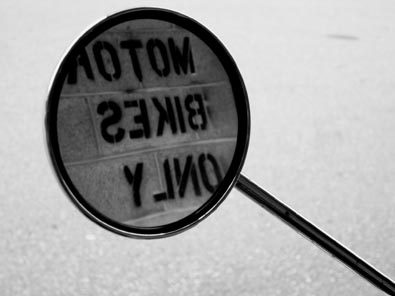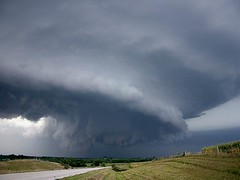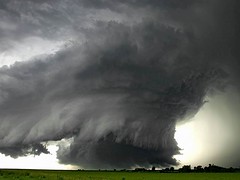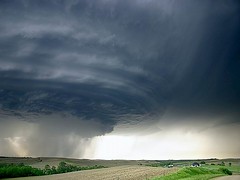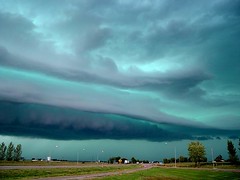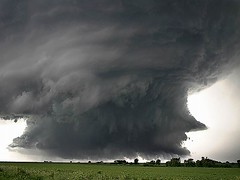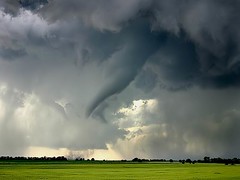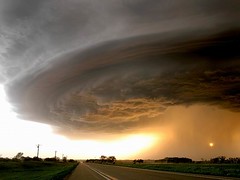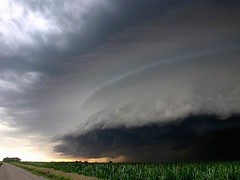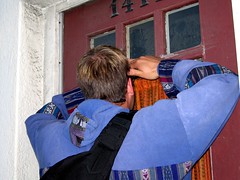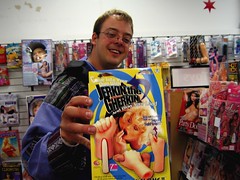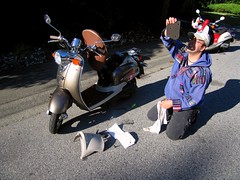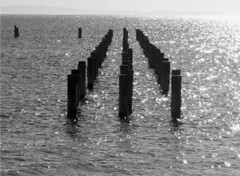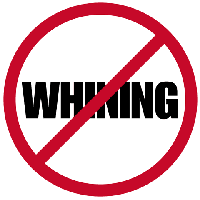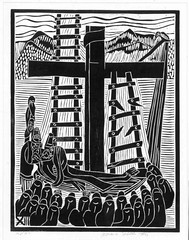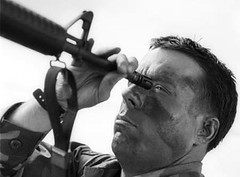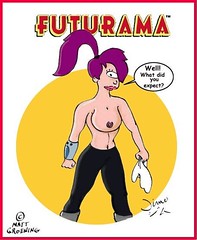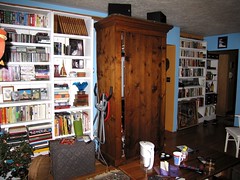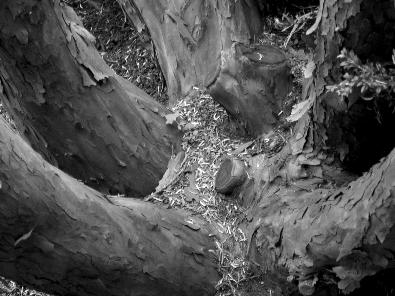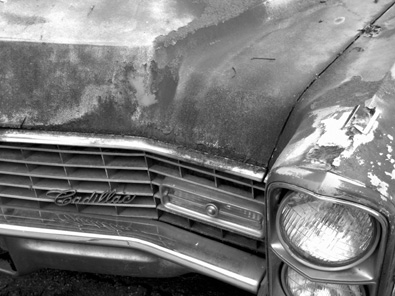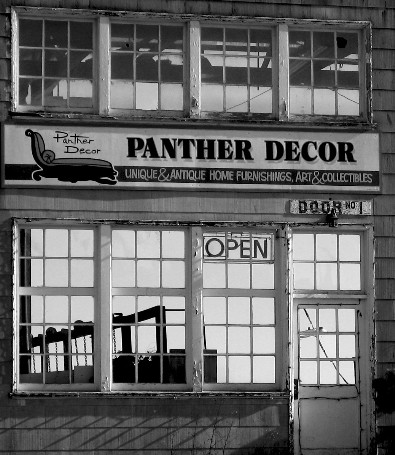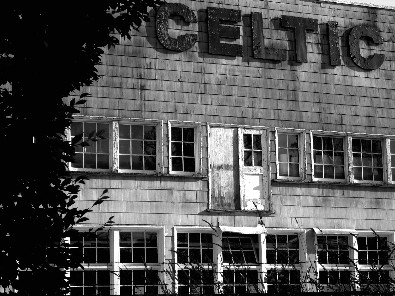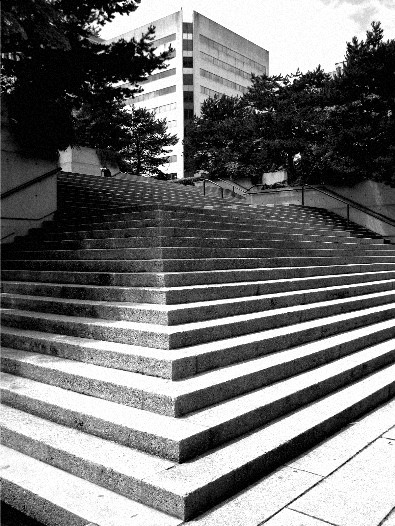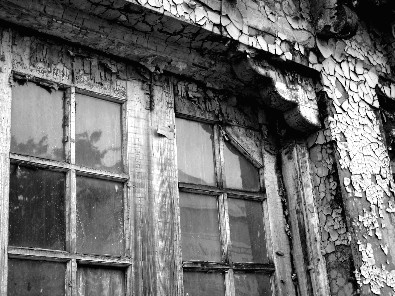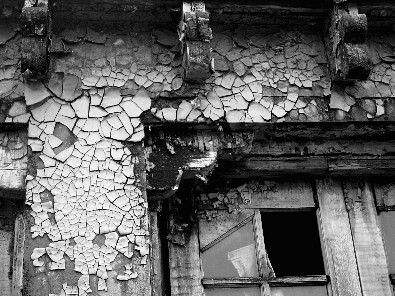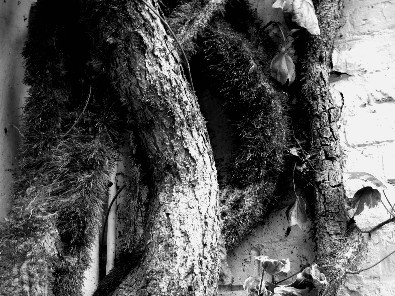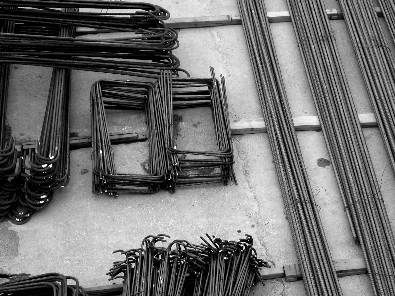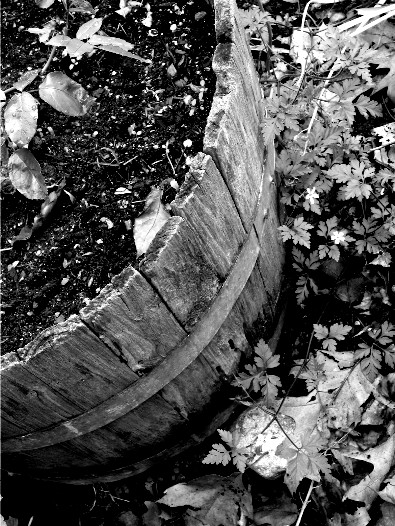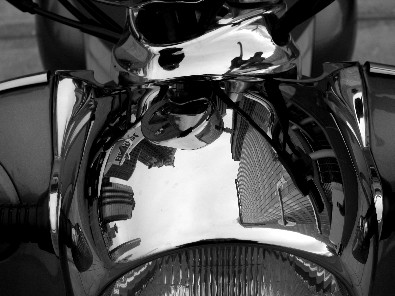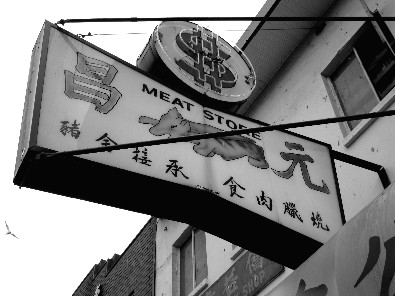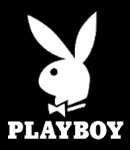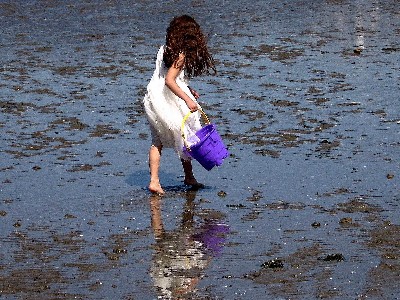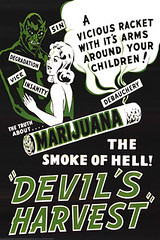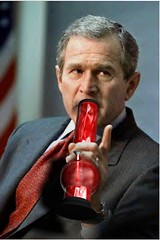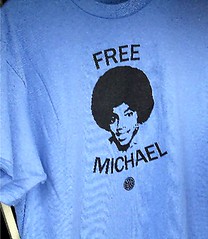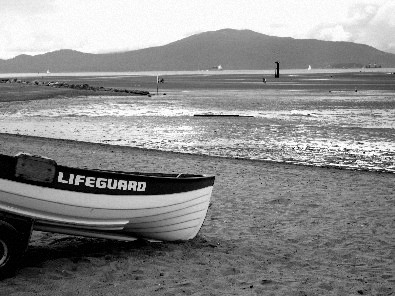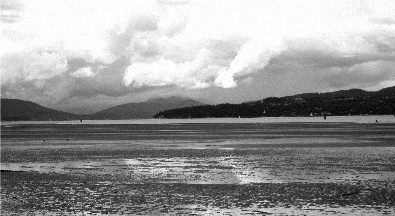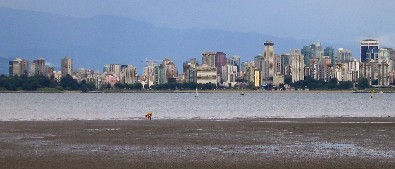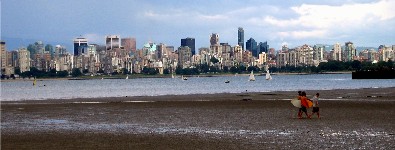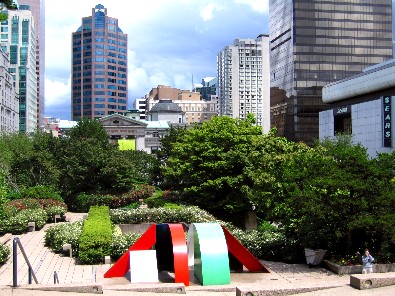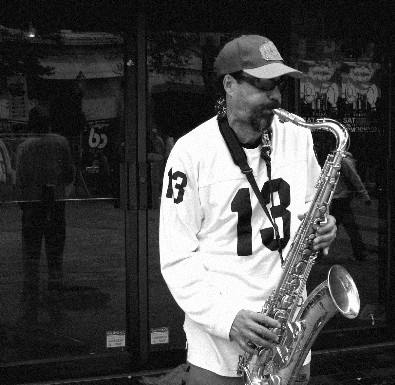(There are certain ads that may or may not be above you that would be a nice thing to click if you knew that a certain scribe [AHEM] had lost her job on Monday... NUDGE, NUDGE.)
Super Andy, formerly
Intern Andy, has tagged me for the book meme thingie-thing. Normally, I don't go for this "tag, you're it," shit, but it's about books!
I once worked at one of the best independent bookstore chains in Canada, ergo the world. We Canadians take our books seriously, and we have more writers per capita than any nation in the world.
So I feel great pressure in having to conjure a list such as this up. Like our national pride or something's on the line. When books are such a broad and crucial element in your foundation, top-fiving them is a bit of a bitch.
But this girl does love a challenge, so let’s see where this goes.
These are my bookshelves. I designed 'em and my dad built 'em. Used to have them natural wood, but the white really zipped 'em up. If you look at it actual size (
click this and go to Flickr, where it's in 16x20 format for a change) you'll even make out photos of my mom.
First, you might want to
read this post I wrote a while back when I unpacked a number of books and got reminiscent about them. I think it’s entertaining, but hey.
The Number of Books I Own
Pfft, you wanna count ‘em, knock yourself out. I’ve given about eight boxes of books away in the past year and a half. I probably have six to eight more in storage in various places. And what I have now, you see here, plus the 50 - 70 in my bedroom at any given time. (Writers’ reference books, a couple shelves thereof, line my wall near my desk in my bedroom.)
The Last Books I Bought
It’s been a while, seriously. Last ones I remember are
The Autobiography of Joseph Stalin (brilliant but dark as hell--
click here to read the first chapter online) and the
Curious Incident of the Dog in the Nighttime by Mark Haddon (brilliant--
read my review from way back right here).
The Last Book(s) I Read
I’ve been reading a few at the same time for a while now. (I do this.) They include:
Drinking, Smoking, and Screwing: Great Authors on Good Times, Going Down: Lip Service from Great Writers, King Leopold’s Ghost, and
Smile, a little-known French book by an Arab-French man. The first two are anthologies, with the first being obvious but the second is about oral sex (or as I said another time, “it’s not about elevators,”) and Leo’s by Adam Hochschild, the co-founder of
Mother Jones magazine, and it's a horrifying look at the genocide of Congo peoples around the turn of the 20th century, when more than 10 million died during the Belgian king's pursuit of the rubber trade, a short-lived gold rush type madness about rubber trees.
*Anthologies are good. They always break up your mix. And if they’re about sex, they’re doubly entertaining, of course. But anthologies are never very consistently good. You have to look for the nuggets, I find.
Five Books That Mean A Lot
Wow. Now? Then? When? Hmm.
The Underground Railway, which I don’t think is the right title. This was a book my father bought for me when he was on a hockey trip one weekend, back when I was 10 or 11. It was stories about blacks that escaped slavery up to Canada, but it was written for mid-teens. I remember it really opening my eyes to equality and civil rights. I no longer own the book, but I think it was reading things like that at that age that shaped some of my fierce moral values. Every now and then my dad did something surprisingly influential like that. Happy Father’s Day, Dad.
Regeneration by Pat Barker.What a brilliant trilogy. Based massively on fact, but fictionalized for obvious reasons, the Regeneration trilogy was a stunning work set in World War I in Britain, with the cast of characters including Siegfried Sasson and Robert Graves, as well as other British war poets of the age. Mostly homosexual, the literary soldiers were forced to hide their sexuality in a massive hunt for homos that transpired at the time. At the centre of the book, though, is Sassoon’s proclamation written against the powers that be because he felt they were prolonging the war for financial gain.
A decorated Second Lieutenant in Her Majesty’s forces, Sassoon was too well-loved to be court-martialed. The government convened parliament to discuss him and it was decided he was “unwell” and he was sent to a psyche ward in Northern Scotland and treated by Dr. Rivers, one of the true-life early pioneers of Freud’s methodology.
I fucking loved this series. Brilliant, clean, sparse prose with a very journalistic style but incredibly insightful psychiatric observations, as well. Harrowing read. The third book in the series won The Booker Prize, which I find is consistently the best-reading prize-winning books every year. (I sometimes find the Nobel winners too inaccessible, and the Pulitzer winners too ordinary topic-wise-- go figure.)
Fear & Loathing in Las VegasFear & Loathing: On the Campaign Trail ‘72
both by Hunter S. ThompsonMy friend, Whipped Boy, who I don’t talk about much but is as huge a presence for me as GayBoy, just not a “character,” blew my fucking mind when he introduced me to F&L in Vegas. I’d never read anything like it, and Hunter opened my eyes to a whole new literary style. Until then, I’d felt repressed and lost about language. I loved it, but not enough, like a kid on the other side of the glass from a kitten at a pet store, I guess.
I read this book in the morning before work and spent the next eight hours tripping intellectually about all the shit I’d never heard about, all the stylings I’d never seen done before.
Unlike other fans of Hunter, I saw him for the broken and sad man he was, and his suicide didn’t shock me too much. The timing, yes, but the act, no. Still, it broke my heart when he blew his brains out,
and you can read my tribute to him here, written the day the news broke.In Praise of Slow by Carl Honore. It’s a way of life, the Slow Movement. It’s about forgetting about time, descheduling yourself a little, planning a little less in advance, and living life as it happens, not just when you get the chance.
The Alchemist by Paulo Coelho. It’s a little fluffy, but I love it. The story of a young Spanish shepherd who sets off to the pyramids of Egypt to find his dreams. It’s a beautiful fable, an easy, quick read, but very exquisitely translated from the Spanish, which is always a refreshing change. Coelho’s work, especially the earlier pre-Veronika books, were effortlessly beautiful and always touching. But I loved the teachings in this fable.
**Then there's
Blood Meridian by Cormac McCarthy,
Crossing to Safety by Wallace Stegner,
Wicked by Gregory Maguire, Jon Krakauer, Jim Crace (fucking brilliant Limey), Chinua Achebe, Sebastian Junger, Ayn Rand, Ken Kesey, Tom Robbins, and so many other writers that have turned me on at different times of my life. This is like ignoring half the loves of my life and saying only some of them mattered. It's hard.
***There are writing books that have influenced me, too--
Story, The Courage to Write, the Renegade Writer, the Observation Deck, Bird by Bird, Escaping into the Open, Why I Write-- but you either write or you don't, and if you write, you should read about writing. Period. Every bit helps. All of the above are worth reading, particularly
The Courage to Write: How Writers Transcend Fear by Ralph Keyes, which likens writing to extreme sports, and is a fascinating (at times) look at the psychosis behind writing.
So now I’m supposed to inflict this on others. They are:
Blog Ho
Love him or blow him, either way.Digitalicat
Ann Coulter tossed his salad.Hermes
He’s a Dive Bar bardShamus o’Drunkahan
Dude’s got issuesand the always fabulous Guyana Gyal
on life in GuyanaIf you wanted to be on this list, I’ve picked people who I specifically know are readers, and who might turn me onto something I’d not heard about before. So it’s ulterior motives, pure and simple. ;)
